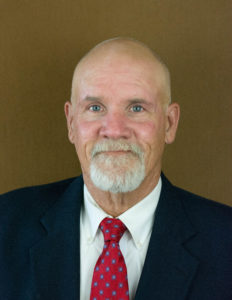Back in 1971, I started working in the oilfield. It was in the summer after graduation from high school that I started as a roughneck. Yep, I worked lead tongs on a “triple.” It had 3 (quiet…sarcasm) Waukesha engines powering that rig. It was a deep hole triple (3 joints of pipe in a stand), out by Fort Stockton. The good part was that I didn’t even know what a triple was but I was certainly glad that I had the title of “lead tongs”! My first day on a rig and I was already a lead!
Minimum wage was $1.60 and I was starting as a worm for $3.50 per hour. I was in tall cotton. The only thing that I was not fond of, was the hour drive to and from the rig without being paid. There was also a requirement that I had to buy some steel toed boots, at my cost.
The other unpleasant aspect was that it was a five-man crew. I did not mind four other guys but the drive was in a Ford Galaxy 500, in the summer, with no air conditioner. Actually the air conditioner worked, but the other four guys preferred to have it off. They indicated it was easier to acclimate to the heat. The driller pulled up to my house at 4:30 a.m. and honked the horn. My neighbors really enjoyed that part. We stopped at the store, bought some gloves, a can of Vienna sausage and bread, King’s food. We drove to the rig but while traveling, out of the five-man crew, four smoked and one did not. I was miserable, but I finally got used to the smoke. Times have changed.
Fast forward to 20 years down the road in the oil industry. I had moved up through the ranks and became a motor man, derrickman, driller, toolpusher, drilling supe and worked domestically and overseas—Italy (land division) and Borneo on an island off of Balikpapan. Due to the booms and the busts, I ventured on the side in retail, cable tool drilling, and various other professions, to survive the busts.
In 2000, I went back into the oilfield and was hired on as an Ops Manager Trainee. My boss came up and asked me, how would you like to go into safety? I laughed and said, “ No! I would not like it at all.” He asked, “Why not?” Of course I asked the question, “Permission to speak freely?” Then I indicated that all the safety men I knew would do a gratuitous drive-by visit in the middle of the day. That was so they could eat breakfast, go in the field, then visit the location, and fill the report out, finding at least 3 things wrong and then leave the location. This was to enable them to be at the house by 5. I didn’t have any use for them, sir. They don’t know operations, but I’ll give them credit, they know all the rules that almost applied to what we were doing that day. They do not generate any money and I’d probably run some of them off. My boss said “Great, you’ll start next week.”
The rest is history. Nowadays, after having been in “safety” for more than 25 years, I love the profession. I have seen the results of bad accidents, delivered accident messages to families, spent many days and some nights at hospitals and emergency rooms. I have experienced major success as well. Everywhere that I went, I felt like I made a difference. One company that I worked for was at an 8.0 + on the TRIR. When I left after 3 years, the last year was a 0.166 with approximately the same man hours.
So nowadays, I’ll meet someone at some social functions and they’ll ask, “What do you do for a living?” I will proudly say that I am a safety professional. The look on their face is priceless. Whether they are in the industry or not, the response is as if I had said, “I am a leper,” or “I work in a circus as a clown,” or “I am a politician.” You can tell they are trying to think of something witty, funny, or suitable. Usually the actual response is, “Oh wow! Look at the time, nice to meet you!” and then they are gone.
Here are a few things that I know for sure. Safety personnel care deeply about their job and the welfare of fellow workers. It is not just about the numbers or an ego trip by correcting unsafe acts in the field. It is all about sending these workers home safely to their family every day.The only true number that we strive for is zero, Zero accidents.
I quote Teddy Roosevelt often, and I have used this quote of his before in previous articles. Here it is again. “I don’t care how much a man knows, until I know how much a man cares.”
We don’t do safety as a profession for the money. We certainly don’t do safety for prestige. We do try to keep the money that’s coming in the front door from going out the back door. I guess it’s the challenge and knowing that we made a difference.
Remember, it is not how many hits you have in baseball, it is how many times you reach home safely! Be blessed. Be safe!











